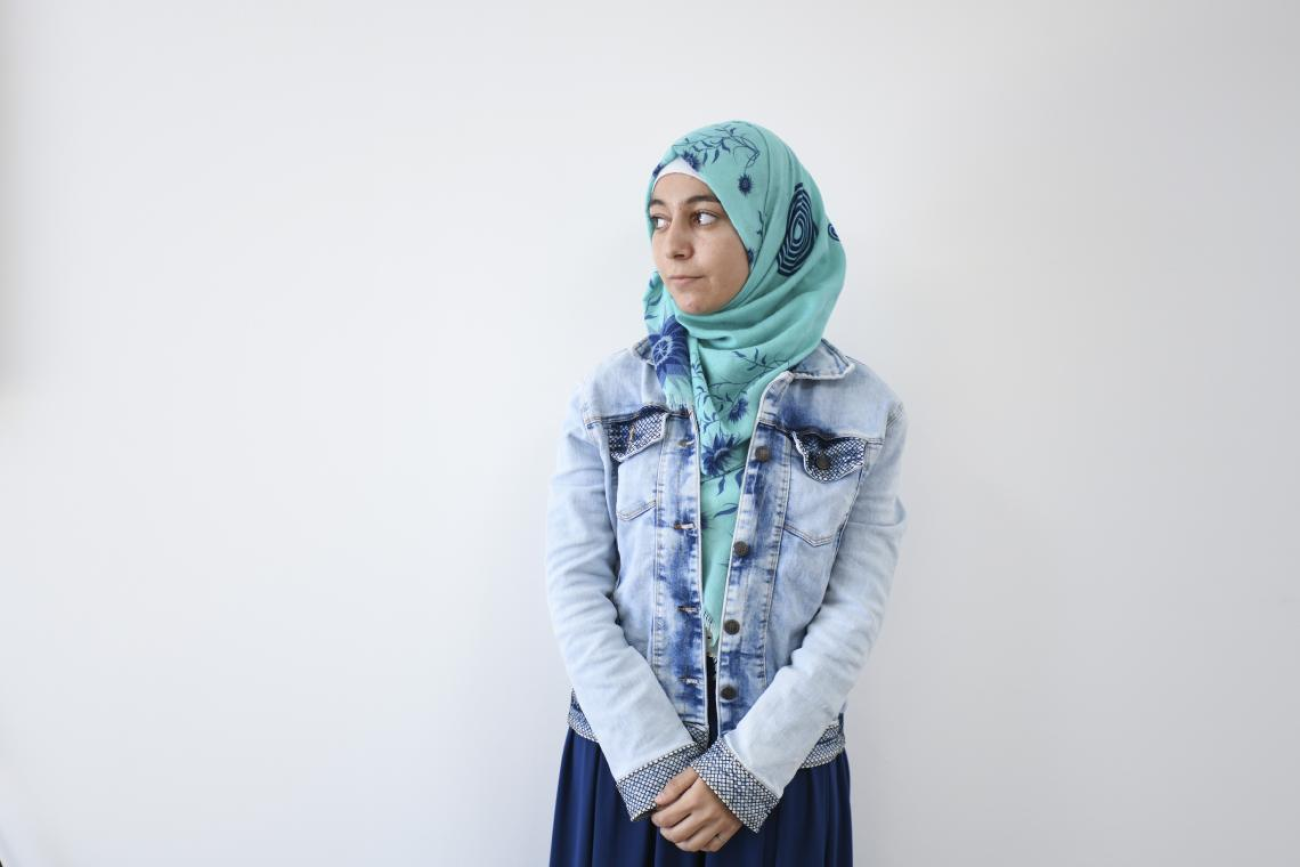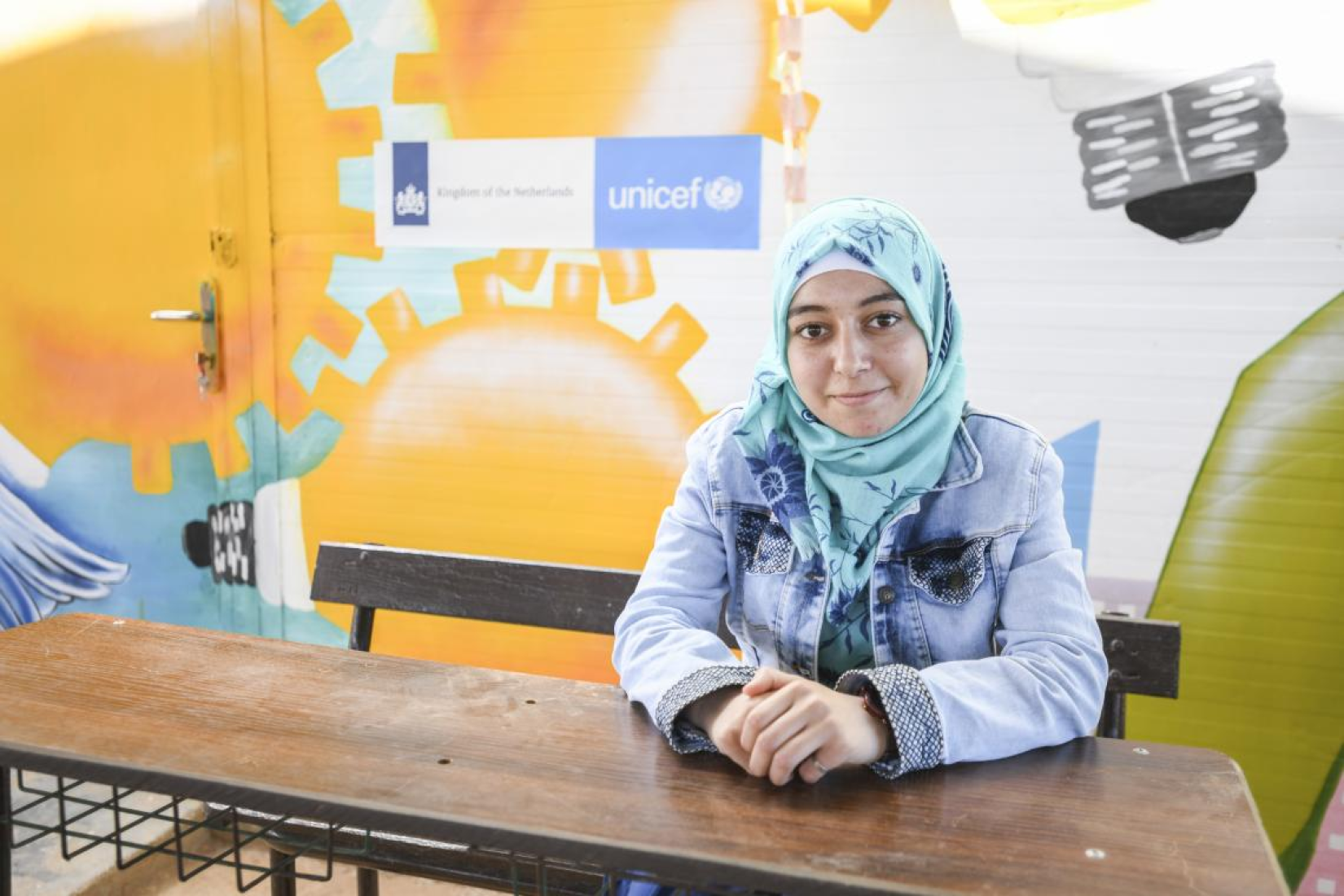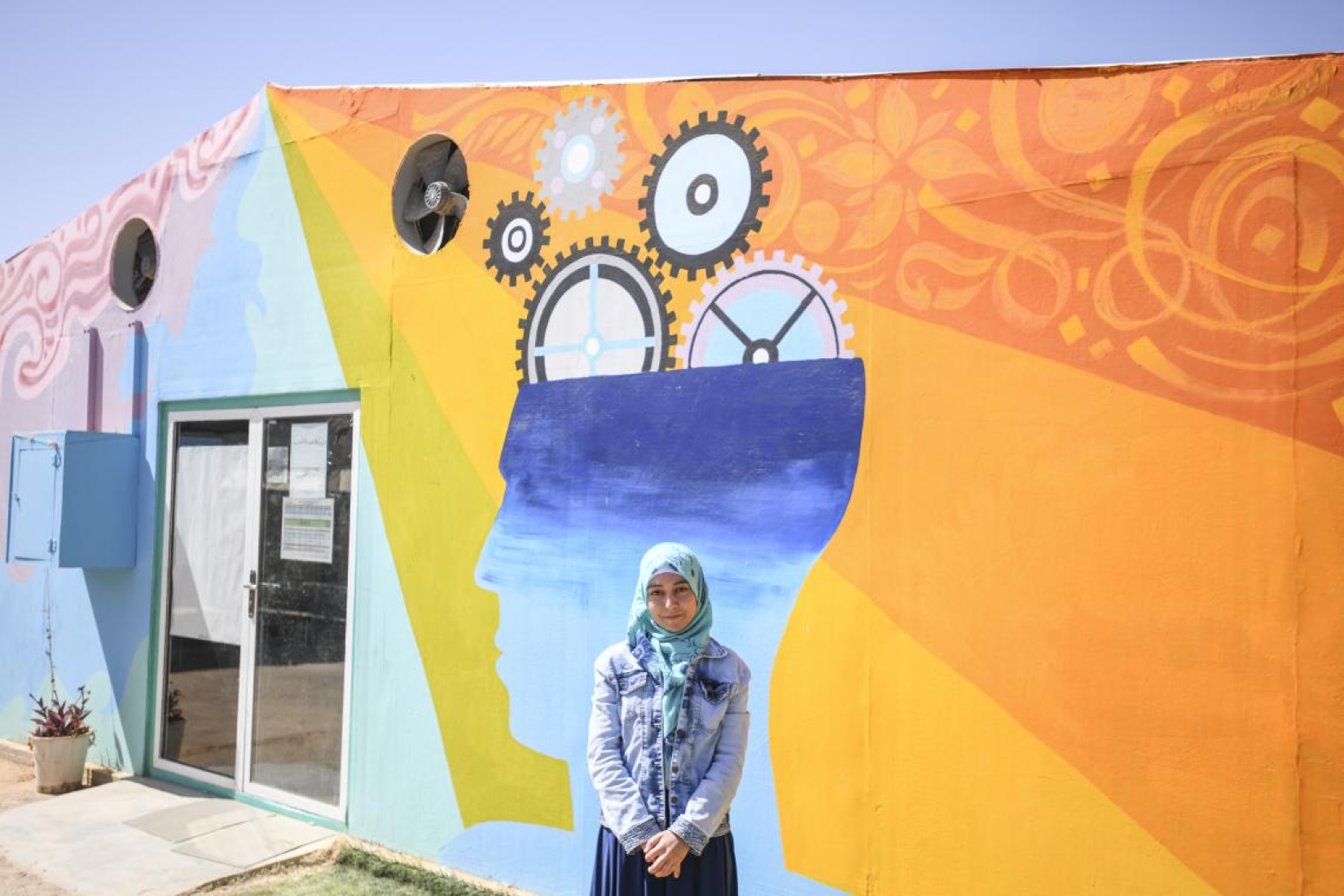“If there is such a thing as good and bad mental health, I’m currently somewhere in the middle.”

On World Mental Health Day, young Syrian refugees in Jordan are prioritizing their mental health in youth-friendly spaces.
Salam was 11 years old when she fled to Jordan for safety from her home in Homs, Syria. Eight years later, her journey to recover from the psychological impacts of conflict and becoming a refugee is a work in progress.
“If there is such a thing as good and bad mental health, I’m currently somewhere in the middle,” she explains pragmatically. To cope with the serious challenges she’s already faced in her young life, including surviving the harsh weather and tough living conditions of Azraq refugee camp where she now lives with her family, Salam works hard to protect her wellbeing.
“Good mental health, in my opinion, is a state of mind where, despite challenges and difficulties, you reframe your thinking through optimism and giving positive energy to others, despite what you are feeling."
"In fact, to me, having good mental health does not necessarily mean you are feeling well.”
Salam’s ability to take care of her mental health was severely tested during the COVID pandemic when, locked in due to public health measures and isolated, her father died suddenly.
“I wanted to share how I felt with others but I couldn’t because my mother and siblings were grieving too. I didn’t want to add to their troubles.”
Devastated by her loss and feeling more alone than ever, she turned to unhealthy habits that wreaked havoc on her fragile mental health.
“I lost myself to social media, watching a constant stream videos. I was completely addicted to my phone. It was my only escape.”

It was during this difficult time, that Salam found a safe haven where she could engage and socialize, and slowly begin to improve her mental health.
UNICEF Youth Centres, which reopened as soon as pandemic-related public health measures eased, provide much-needed youth-friendly spaces in Azraq and Za'atari refugee camps. Inside the centres, young people, like Salam, engage in recreational activities, receive study support, training and social innovation courses, access the internet and hang out with their friends and peers.
The centres, which are generously supported by the Kingdom of the Netherlands, through the Prospects partnership, also help young people to successfully transition to adulthood with career counselling, volunteering programmes, entrepreneurship training and support, and youth participation activities to enable them to meaningfully engage in the issues facing them and their communities. Recently the centres have also provided mental health awareness sessions to support youth navigate this critical health issue.

Through her experience at the centre, as well as accessing counselling in school and finding solace in prayer, Salam feels as though she is making progress towards achieving her goals.
On World Mental Health Day, Salam’s message for other young people who are looking for ways to improve their mental health is:
“Be strong. Talk to and seek the advice of others who love you and care for you.”
This World Mental Health Day, UNICEF is inviting everyone to break the stigma around speaking about mental health. It start with a simple question – What’s on your mind?

